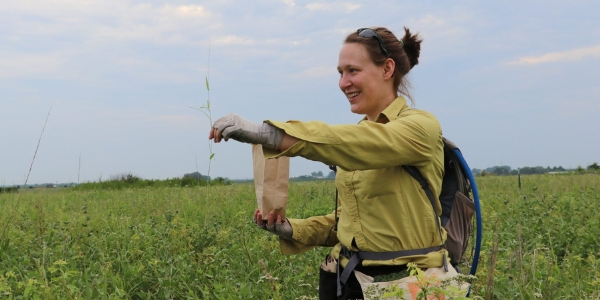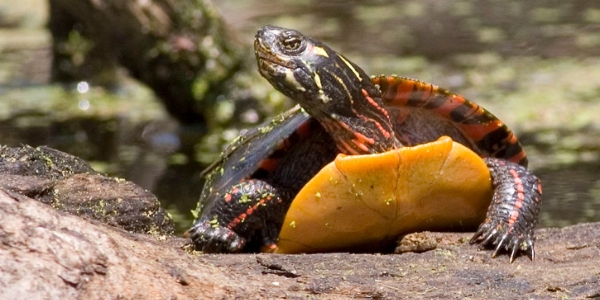Lindell comments in journal about publishing challenges.
The journal Ornithological Applications, edited by EEB core faculty member Catherine

Lindell, published two articles that focus on the challenges faced by Neotropical ornithologists in publishing their work and how organizations like the American Ornithological Society can work to address these challenges.
In the editorial "Working with Neotropical ornithologists to increase equitability in publishing" Lindell, associate professor of Integrative Biology, writes:
"One of the harder things I face in my professional and personal lives is trying to put myself in another person’s shoes and see the world through their eyes. And then, I never know if I have succeeded, given the impossibility of experiencing all that someone else has encountered. However, these efforts are critical to understanding and addressing current shortcomings in our research and publishing practices that affect individual scientists, scientific institutions, the public that depends on science, and science itself.
This issue of Ornithological Applications features two articles written by over 100 ornithologists based in Latin American and the Caribbean, and their allies. The articles were instigated by a set of articles on Neotropical ornithology published in American Ornithological Society journals which had a paucity of authors from the Neotropics. The current articles describe the strengths of Neotropical ornithology as it is practiced in Latin America and the Caribbean and the challenges, particularly in publishing, that these ornithologists face. The writers took time and effort away from their ornithological work to plan, coordinate, write, revise, and finalize these papers. It was a great effort because they saw a great need, both to describe and illustrate the research and publishing worlds they inhabit, and to provide recommendations for global scientific organizations, such as AOS, to enhance their accessibility and reach.
The recommendations in these papers range from querying authors about research processes when articles are submitted, to increasing representation of ornithologists based in the Neotropics on our editorial boards, to allowing for the review process to be conducted in Spanish. I anticipate a range of opinions and fruitful conversations about the recommendations. I am grateful that we have these articles to work from and confident that we can make progress. At a time when environmental challenges have never been greater, so too are the human, social, and technological capital we can marshal to meet these challenges. These articles will help guide us to a point where all ornithologists can disseminate their investigations and knowledge with equal alacrity and receive equal credit for their work.
I will end with a few of the images, sounds, and sensations that birds inhabiting the Neotropics have brought to so many of us; the harsh and human-like call of Nyctibius grandis; the social antics of Opisthocomus hoazin; the choreography of the Pipridae, and the incessant activity of Leiothlypis peregrina in coffee plantations. The best chance to preserve these unique species, and the information they provide about our evolution and environment, will come from our dedicated efforts to smooth the way for everyone to use their resources, energy, and talents in contributing to ornithological knowledge."
The articles are:
Science has a news story: Latin America’s bird scientists issue manifesto to end marginalization.



